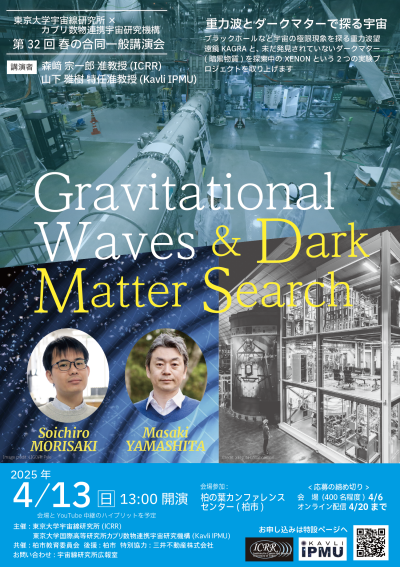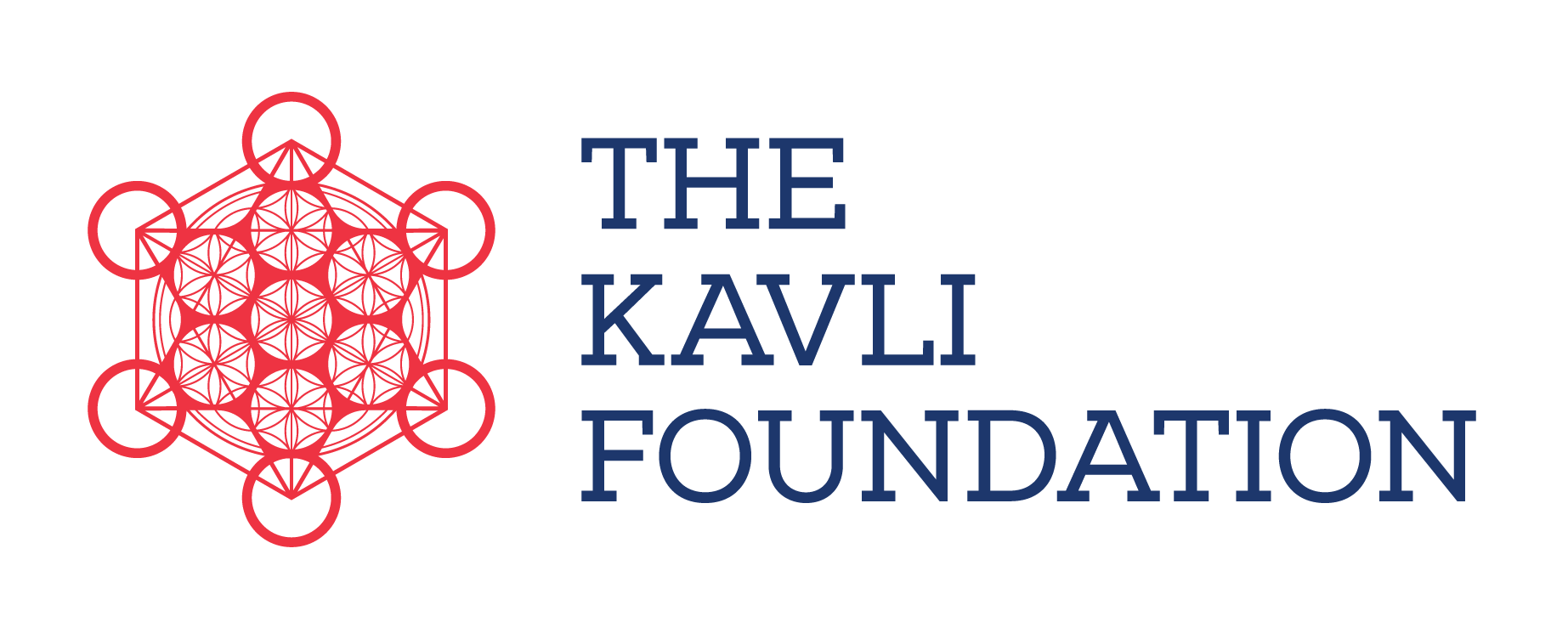26 February, 2025
Kavli Institute for the Physics and Mathematics of the Universe (Kavli IPMU, WPI)

This April 13 (Sun), the Kavli IPMU and Institute for Cosmic Ray Research (ICRR) will be co-hosting a hybrid public lecture, "Gravitational Waves & Dark Matter Search."
This event is recommended for participants with junior high school level science knowledge. Admission is free. Online participation has no seating limit, but pre-registration is required.
For more details, visit the Institute for Cosmic Ray Research website.
Event Summary
Time & Date: 1PM - 4PM, April 13, 2025
Venue: Kashiwanoha Conference Center (Kashiwa city) or online
Host: The University of Tokyo Kavli Institute for the Physics and Mathematics of the Universe (Kavli IPMUm WPI) and the Institute for Cosmic Ray Research (ICRR)
Supported by: Kashiwa City Board of Education, Mitsui Fudosan Co., Ltd. (special support)
Support: Kashiwa City
Difficulty level: Junior high school level
Admission: Free
Seats:
- Onsite venue 400 seats (if registration numbers exceed seat numbers, a lottery will be drawn to select participants)
- No limit for online participants
How to register: Institute for Cosmic Ray Research website
- Deadline for onsite participation: April 6 (Sun)
- Deadline for online participation: April 20 (Sun)
How to attend: Details about how to attend will be sent to those who have completed registration via email.
Contact us:
About registration: 080-4866-2631 (10AM - 5PM Weekdays) - Institute for Cosmic Ray Research Public Relations
About the event: 04-7136-5981 / Email: koukai-kouza_at_ipmu.jp - Kavli IPMU Public Relations
*Note: please change _at_ to @
Program
1PM - 1:50PM
Lecture 1
The Extreme Phenomenon of the Universe Revealed by Gravitational Waves
Speaker: Soichiro Morisaki (ICRR Associate Professor)
The direct detection of gravitational waves by gravitational wave telescope LIGO in 2015 opened the way to gravitational wave astronomy. Since then, hundreds more gravitational wave signals have been detected, and now we are on the cusp of being able to explain many things, including the formation process of black hole binary stars emitting gravitational waves, the nature of gravity in extreme environments, and the formation of heavy elements by the coalescence of neutron star binary stars. Japan's gravitational wave detector KAGRA started observations in 2020, and is expected to make significant contributions to gravitational wave research in the future. In this lecture, I will talk about the forefront of gravitational wave research, which continues to make progress, and its future prospects.
1:50PM - 2:40PM
Lecture 2
The Challenge to Find Dark Matter: Exploring the Mystery of the Universe from Underground
Speaker: Masaki Yamashita (Kavli IPMU Project Associate Professor)
You've probably heard of the term "dark matter". The fact is that researchers have known about dark matter for about one hundred years now, but no one has been able to uncover its true nature. But it is important because dark matter is thought to have played an important role in shaping the universe as it is today. Researchers all around the world are using a variety of techniques to unravel the mystery of dark matter. If we can identify its nature, we may be able to find an answer to the universe's most fundamental question: why do we exist? I will talk about the forefront of dark matter research, focussing on experiments that are being carried out 1400 meters underground.
3PM - 4PM






